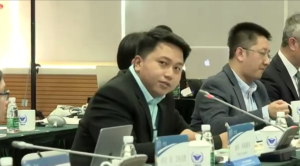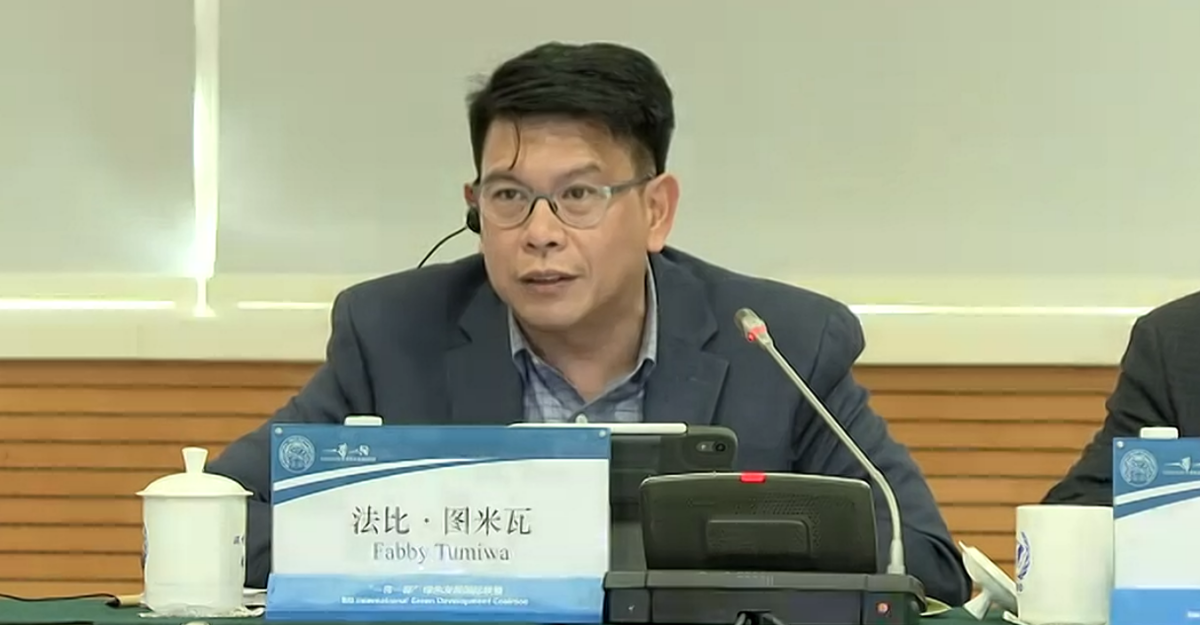Beijing, March 27, 2023 – The Executive Director of the Institute for Essential Services Reform (IESR), Fabby Tumiwa, highlighted that the Belt and Road Initiative (BRI) allowed China to play a role in accelerating the energy transition in Indonesia. He mentioned this as a guest speaker promoting green and low carbon transition in BRI participating countries and CCICED particular policy study on green BRI workshop on Monday (27/3/2023).
“Indonesia must increase its ambition to make emission reductions compatible with the Paris Agreement. Under the current plan, Indonesia will achieve the energy sector’s net zero emission (NZE) after 2060, but the electricity sector will reach zero in 2050. For this reason, we need more efforts to decarbonize the transportation and industrial sectors,” explained Fabby.
He also underlined that Indonesia needs a cumulative investment of around USD 1.3 trillion spread across various technologies in the push for decarbonization. Under these conditions, Fabby said, China could play a role in supporting the energy transition in Indonesia through technology, manufacturing, and investment cooperation, considering that there is market potential in increasing demand for renewable energy in Indonesia.
“Solar power will play an important role in Indonesia’s energy transition. Based on the 2021-2030 Electricity Supply Business Plan (RUPTL), PLN plans to add 3.9 GW of solar energy in 2025. For this reason, BRI’s investment in 2023 needs to be focused on financially feasible projects, such as scalable solar and wind power plants, said Fabby Tumiwa.
On the other hand, the existence of BRI can enable investment in the renewable energy component industry. This can be done by considering the complexity of the supply chain. Fabby emphasized that industrialization in Southeast Asia accompanied the push for the energy transition, such as energy storage, electric vehicles, and solar panels.
“Currently, Indonesia has started to develop the battery and electric vehicle industry because of its great nickel content. Low production costs and availability of resources are several opportunities to develop the local solar module industry in Indonesia,” said Fabby.
On the same occasion, Deon Arinaldo, Energy Transformation Program Manager, Institute for Essential Services Reform (IESR), explained various power system plans and projections expected to accelerate the spread of renewable energy in Indonesia. For example, the latest power system energy planning stipulates around 20.9 GW of renewables to be built in 2030. This number will increase by at least 5-6 GW if Indonesia considers the Just Energy Transition Partnership (JETP) target of 34% renewable energy mix in 2030.

“To achieve the national policy target in 2025, the IEA projects an additional solar energy capacity of 17.7 GW above that planned in the RUPTL. Meanwhile, based on the IESR scenario, the power generation capacity based on renewable energy must be boosted to 140 GW to limit global warming to 1.5°C,” Deon explained.
However, said Deon, historically, the installed capacity of renewable energy has only grown around 500 MW per year. This happened because there were several main challenges, including excess capacity at the Java-Bali power plant. Moreover, the domination of coal power plant capacity with a take-or-pay mechanism needs to make room for the integration of renewable energy. Another challenge is the renewable energy procurement process and the requirements for using local content, which places unnecessary risks in developing renewable energy.

